Montpellier is one of the lesser-known cities on the French Riviera, but you’ll still find everything you could want from the French Mediterranean coast.
If you’re thinking about living in Montpellier, you might have questions about the lifestyle that awaits you there.
In this guide, we’ll cover important topics about what it’s like to live in Montpellier, France. We’ll look at things such as the cost of living, the best areas for retirement in the city, and some general tips for getting the most out of this exciting French city.
Secure Peace of Mind with Best-Value International Health Coverage
International Citizens Insurance provide free, no-obligation quotes from the leading international health insurance providers with plans tailored to meet your needs. Trusted by thousands of expats worldwide.
An overview of Montpellier
Montpellier is located in the Occitanie region of France and boasts a colorful history.
The city was a main hub on the Mediterranean coast during the Middle Ages, and its university is one of the oldest in the world. Established in 1220, its medical school is the oldest in the world and still in operation. It has notable alumni such as Nostradamus.
In recent decades, Montpellier has experienced some of the strongest economic growth in France, and in 2017 it was nominated for the Best Emerging Culture City of the Year award. It regularly ranks high on lists of living quality worldwide and in France.
Its university is still one of the city’s main economic draws. Each year, roughly 70,000 students make their home in Montpellier, meaning it has one of the highest student populations in Europe.
Montpellier is located around 6 miles from the French coast and is quite hilly in its topography. There are a lot of beautiful beaches not far from Montpellier, and you can have a brilliant time at the seaside.
Plage de L’Espiguette, for example, has been voted one of the most beautiful beaches in France. The beach stretches almost 18 kilometers long, with sand, dunes, and great waves crashing onto the shoreline.
Montpellier as an expat destination
Living in Montpellier can be the most amazing experience of your life if you are looking for culture, good infrastructure, great weather, all the amenities within walking distance, and a sophisticated yet not too urbanized lifestyle.
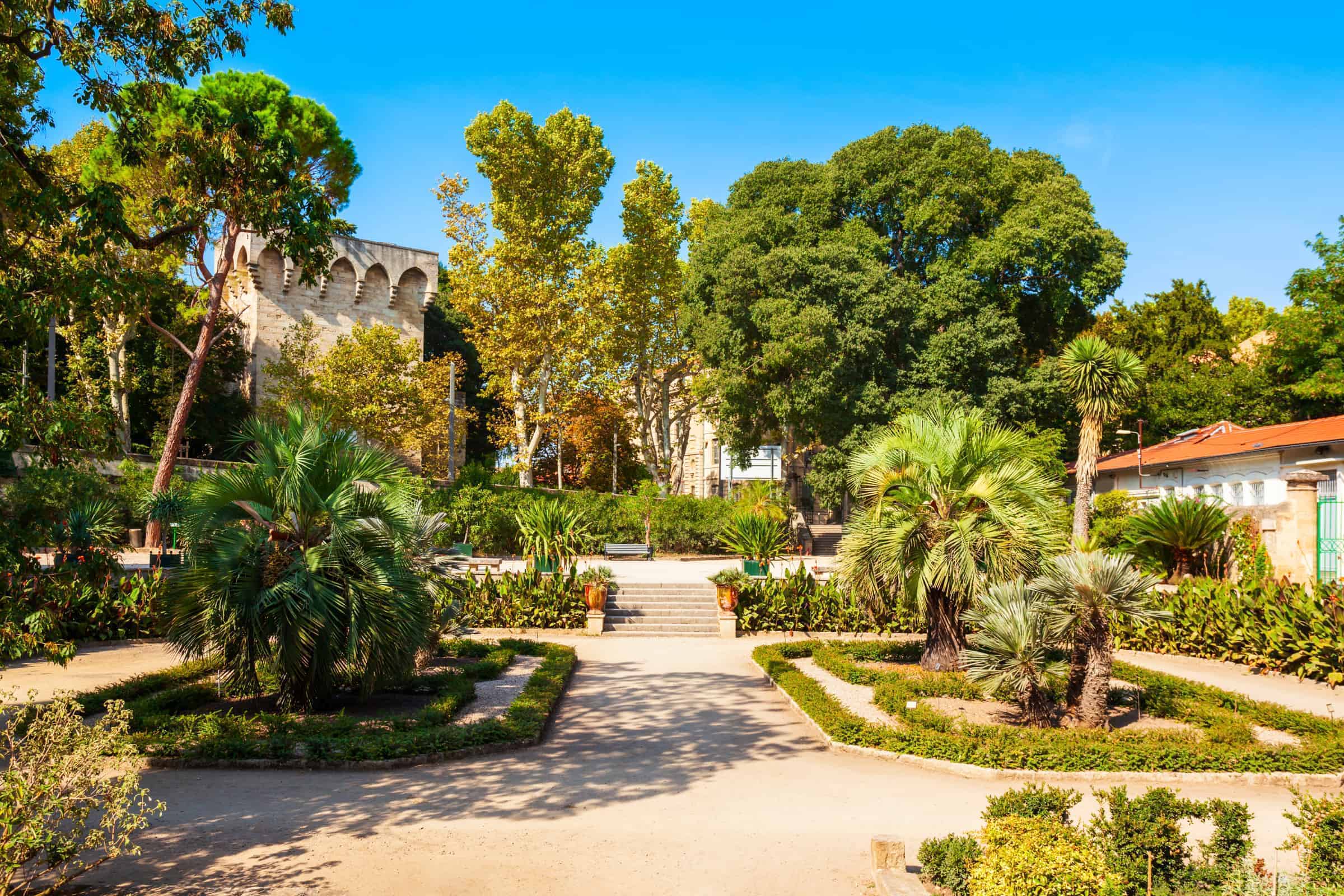
Montpellier is nicknamed “gifted” by the French, and if you get a chance to experience its lifestyle, you can see why.
Montpellier is a dynamic city that fuses traditional French culture with modern industries and innovation.
It’s home to the largest pedestrian area in Europe – making it a great city for walkers. When you explore its winding streets, you’ll find a mix of family-run bakeries, boutique clothes shops, open-air markets, and a fair few cafes and restaurants.
Like other cities on the French south coast, Montpellier experiences some amazing weather. Its proximity to the Mediterranean regulates the temperature much more than inland locations, meaning there’s less variation between summer and winter temperatures.
In the summer, you can expect highs of 24 degrees C, which drops to around 7 or 8 degrees C in the winter. Rainfall is moderate, with January and November regularly ranking as the wettest months. Summers are dry, with around 11 hours of sunshine a day in July.
Then, of course, you have amazing food and wine like anywhere else in France. If you like to cook at home, plenty of markets sell local produce. But if you prefer to eat out, you won’t be short of choices, including a selection of Michelin-starred restaurants.
Finally are the city’s cultural and sightseeing opportunities. Montpellier is home to two large concert venues: L’Arena (14,000 seats) and Le Zenith Sud (7,000 seats).
There’s an annual opera festival each summer that features over 150 events and an annual cinema festival held in the autumn. The festival, Cinemed, is the second-largest in France behind Cannes.
In Montpellier, you’ll also find attractions such as Le Jardin des Plantes de Montpellier, the oldest botanical garden in France, a 12th-century ritual Jewish bathhouse, 17th-century mansions, and the citadel of Montpellier, among others.
In short, living in Montpellier has plenty to offer
, especially after good weather and culture, without the same level of tourism you’d find if you livedin some of the better-known French Riviera cities.
Safety in Montpellier
Montpellier is as safe as any city can be. You will probably be wise not to risk walking alone at night in poorly lit areas or dark alleyways or leave your car unlocked or your personal possessions unattended.
Crime relating to theft is generally regarded as moderate, although the risk of general theft is ranked relatively high.
Montpellier’s figures are almost no different from London’s. Large cities are not unusual to rank highly in crime statistics, particularly those with a robust police presence. If you’d be happy to live in a large British city, then there’s no reason you wouldn’t feel safe living in Montpellier.
Areas to avoid in Montpellier
You will have no problem finding a safe and peaceful location in Montpellier; however, some areas are best avoided, like any large city.
- The Mosson area in the northwest of Montpellier.
- The Ecusson and the Saint Roch areas around the Montpellier train station
The pros and cons of living in Montpellier, France
While breaking a city down into its main pros and cons can only be helpful to an extent, it is always a useful way of seeing its main draws in black and white. Here is a breakdown of the main pros and cons of living in Montpellier, France.
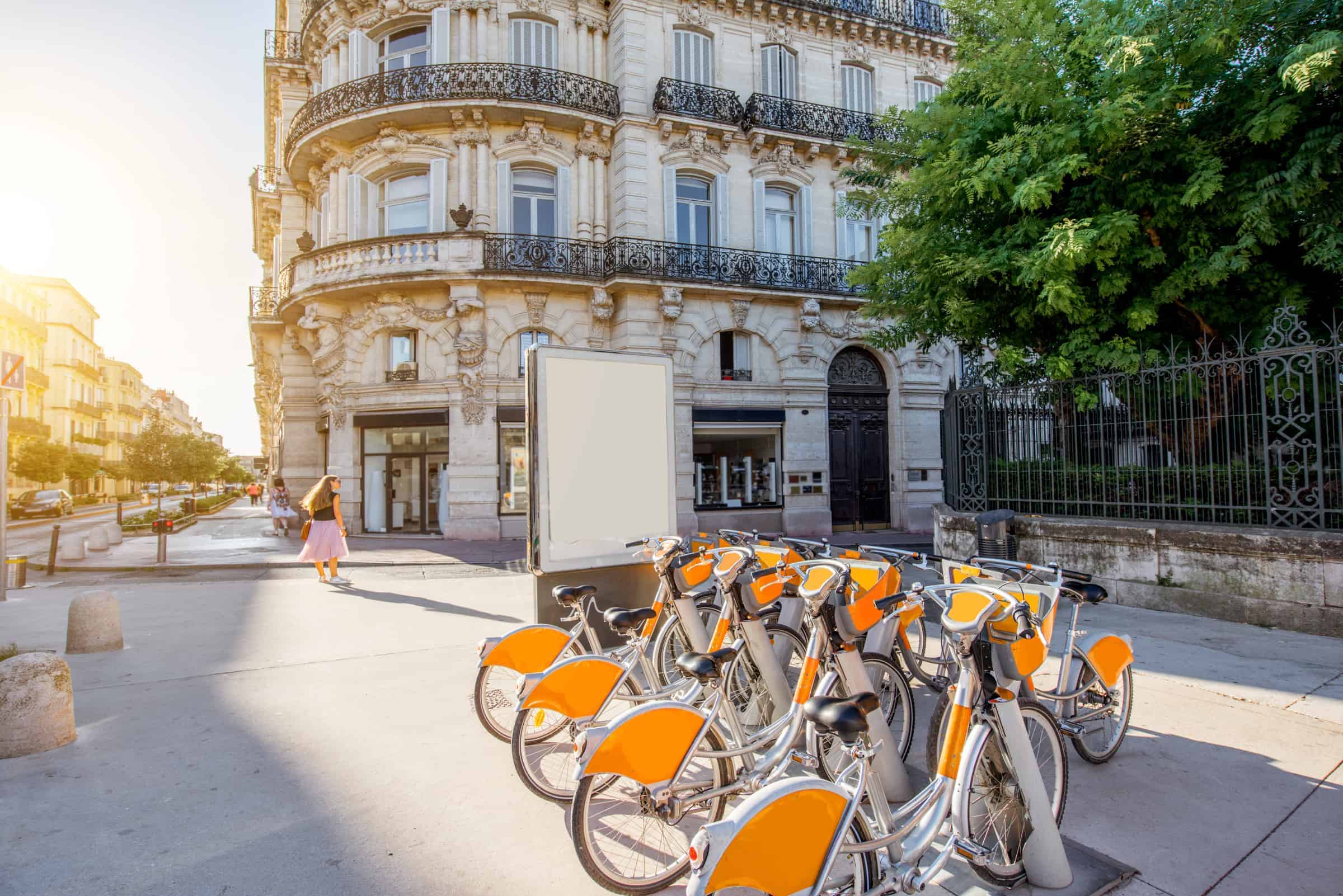
Pros of living in Montpellier
1. Plenty of cultural activities
Montpellier is home to many music and cinema festivals that appeal to all tastes. Along with the historic buildings and botanic gardens, you’ll also find music festivals based on jazz, world music, rhythm and blues, and electronic music. Finding something to do almost all year round won't be difficult.
2. Booming economic growth
The city is the fastest-growing in France, and this brings many benefits. Most important are factors such as better infrastructure, sustainable living, and plenty of investment opportunities (if that’s something you’re looking for in retirement).
3. Amazing food and wine
It almost goes without saying that a French city has great food and wine opportunities. Whether you visit the Saturday market in Les Arceaux or the Marche du Lez, book a table at the Michelin-starred La Reserve Rimbaud, or drop into one of the numerous cafes or wine bars, you won’t be short of options for typical French food.
4. International connections
Montpellier has its own airport with connections to the UK, but you also have Nimes, Marseille, Beziers, and Avignon, all within a driveable distance. You really won’t be short of options for international connections.
5. Almost everything is within walking distance
Montpellier is a fairly small city, and while its public transport is acceptable, you can reach almost anywhere on foot or bike. This is a particular bonus for those wanting a more active lifestyle in retirement.
Cons of living in Montpellier
1. It can rain a lot in the winter
Anyone who’s lived in a coastal city before will know the impact this has on the weather. While the summers remain fairly dry, rain can be quite heavy in the autumn and winter. But if you’re relocating from the UK, this is probably something you’re used to!
2. Administration can take a long time
It’s a fairly common fact that administration isn’t one of France’s strong suits, and it’s no different in Montpellier. Expect simple things like arranging permits and licenses and opening a bank account to take longer than you might think.
3. High student population
This might not be a major con for many people, but 50% of Montpellier’s population is under 34. If you’re looking for established expat communities of people in your own age group, there might be better retirement destinations in France.
What to expect if you retire in Montpellier, France
Montpellier has a fairly sizeable international expat community, although it’s not as popular with British expats as other French cities. That said, you should be able to find some local community groups to help ease you into your new French lifestyle.
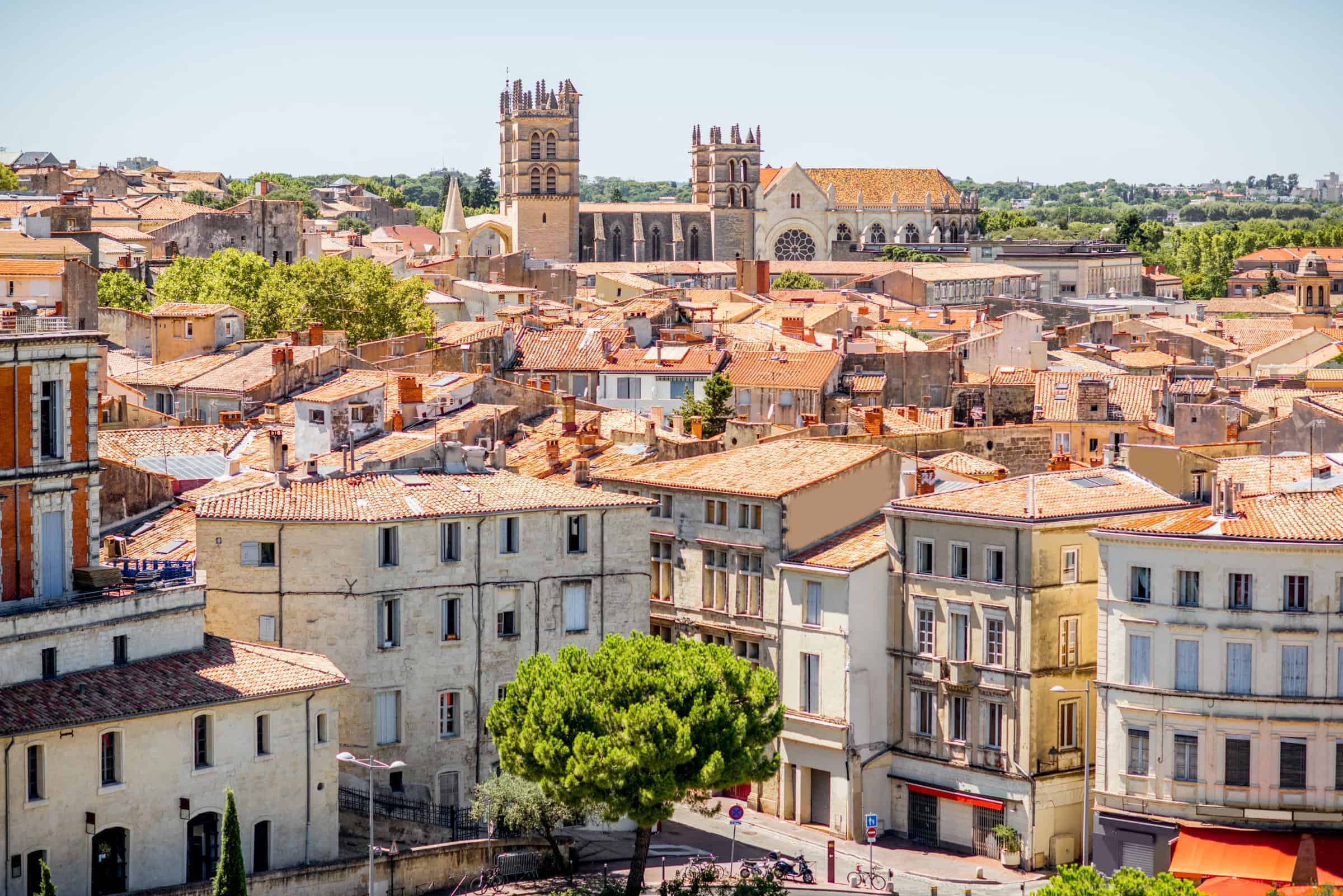
It’ll be a suitable choice for those wanting a more active lifestyle. Owning a car won't be necessary if you plan on living in the city. There’s plenty to keep you busy and good public transport connections into and out of the city (including a beach shuttle).
Those expats living in Nice, Cannes, Marseille, or other internationally renowned French cities can get away with knowing little French. However, if you choose Montpellier, you’ll need to brush up on your French because English isn’t as widely spoken here.
Shopkeepers might have some basic knowledge, but you’ll be looked upon more favorably for speaking their language. Several language schools in the city offer courses for expats.
The cost of living in Montpellier
Due to its location on the south coast of France, the cost of living in Montpellier is slightly higher than in more rural French destinations. At the end of the day, living in the French Riviera doesn't come cheap.
On the other hand, it’s slightly lower than places such as Nice and Marseille because it’s not seen in the same “exclusive” way.
Compared to London, the cost of living in Montpellier comes out lower. Restaurant prices are around 20% lower in Montpellier, but grocery prices are roughly 22% higher. However, if you buy from local markets, you can get great savings by haggling with sellers (something you’ll get used to the longer you live there).
As you can probably guess, rent and property prices are considerably lower in Montpellier. A 3-bed apartment in the city center will cost you around €1500 monthly.
When buying a property, expect to pay around €3,500 (£3,200) a square meter for central properties.
Of course, this will vary depending on the location. Areas outside the city center will be considerably cheaper, and the city has many opportunities for buying property.
Thanks mainly to its recent economic boom, there has been a lot of construction work. It shouldn’t be difficult to snap up an attractive modern property for little money.
Finally, you can expect to pay around €115 (£103) monthly for important utilities.
While Montpellier might not have the lowest cost of living in France, it’ll still be a pleasant surprise for most Brits, Americans, and Northern Europeans. You should be able to live a fairly varied and interesting lifestyle for around €1,400 a month for a couple, excluding rent.
- Renting A Property In France - rental procedures and rules in France that you need to know before signing a French rental contract;
- Buying A Property In France - understand how buying a property is done in France to ensure a safe house purchase.
Best neighborhoods in Montpellier, France
So if the cost of living in Montpellier seems attractive to you in retirement, it’s worth deciding where would be best to settle down. The city is divided into seven official neighborhoods, each of which has subdivisions.
If you’re unfamiliar with the city, it’s probably worth finding an inexpensive rental (or longer-term hotel) that you can use as your base. Then explore the neighborhoods to see which most appeals to you.
It’ll obviously be worth researching local immobiliers (estate agents) to see their available properties.
Here are some of the most attractive neighborhoods in Montpellier for retiring expats:
Les Arceaux
Les Arceaux is fairly centrally located and has everything you could need. It’s home to one of the best open-air markets in the city and has great tram connections. What’s more, it’s fairly inexpensive regarding property prices.
Antigone
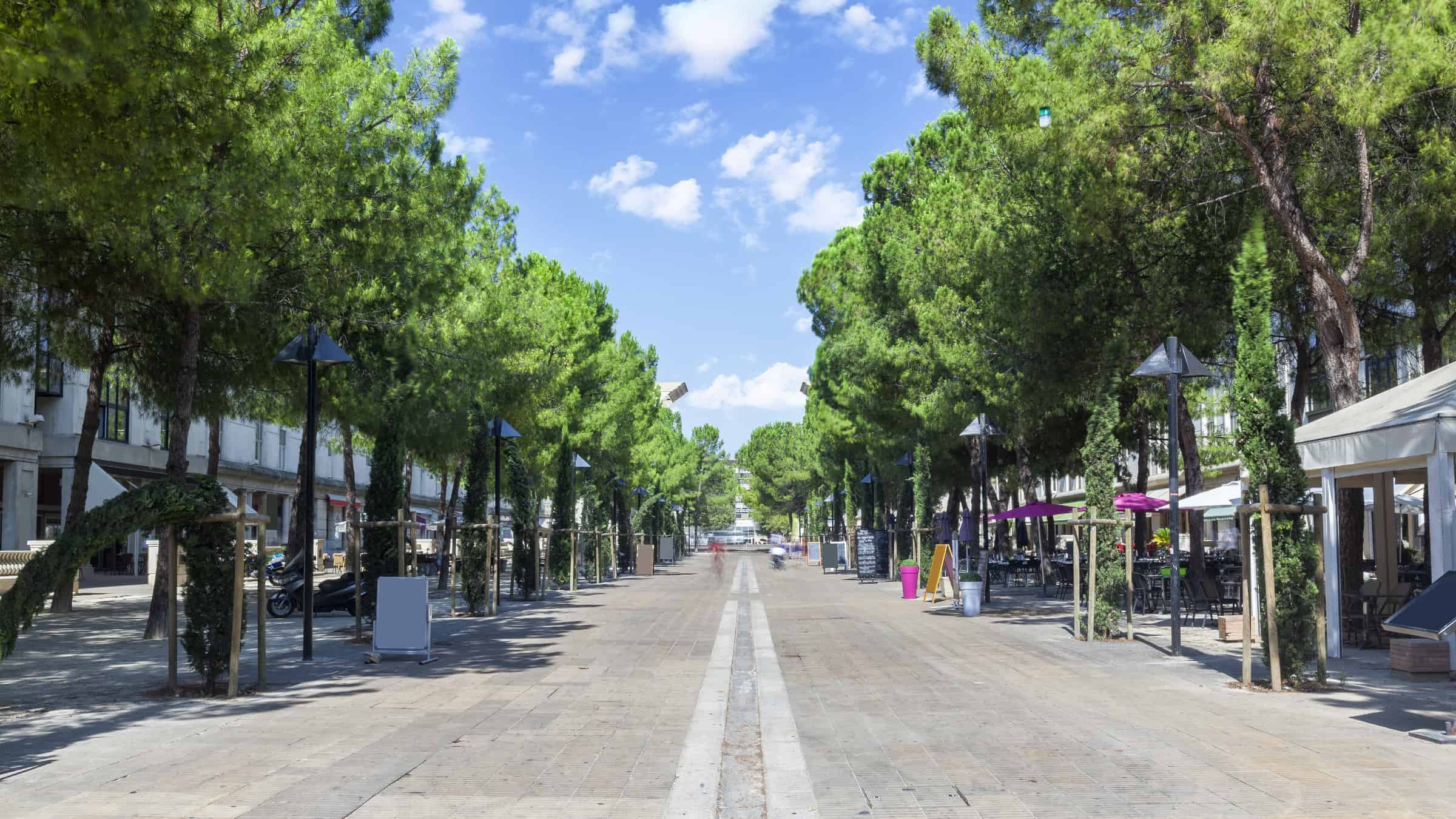
Antigone is a recent residential development in Montpellier, located east of the city center. Development only started in the late 1970s, and the buildings are fairly modern by the city’s standards. It has plenty of tram connections to the rest of the city too.
Castelnau-le-Lez
Located on the banks of the River Lez, Castelnau is part of the larger Montpellier metropolitan area. It’s located north of the city and is a slightly hillier region. But this means better air quality, more open spaces, and a quieter lifestyle. The village has been an active site for over 2,000 years, but the community, as you’ll see it today, is mainly based on its 12th-century iteration.
Beaux Arts
Beaux Arts is one of the trendier areas of Montpellier and is home to a museum, an open-air market, and plenty of alfresco wine bars. It’s popular with university students but is equally home to more bohemian populations looking for the artistic lifestyle you’d expect from such a cultural city.
Port Marianne
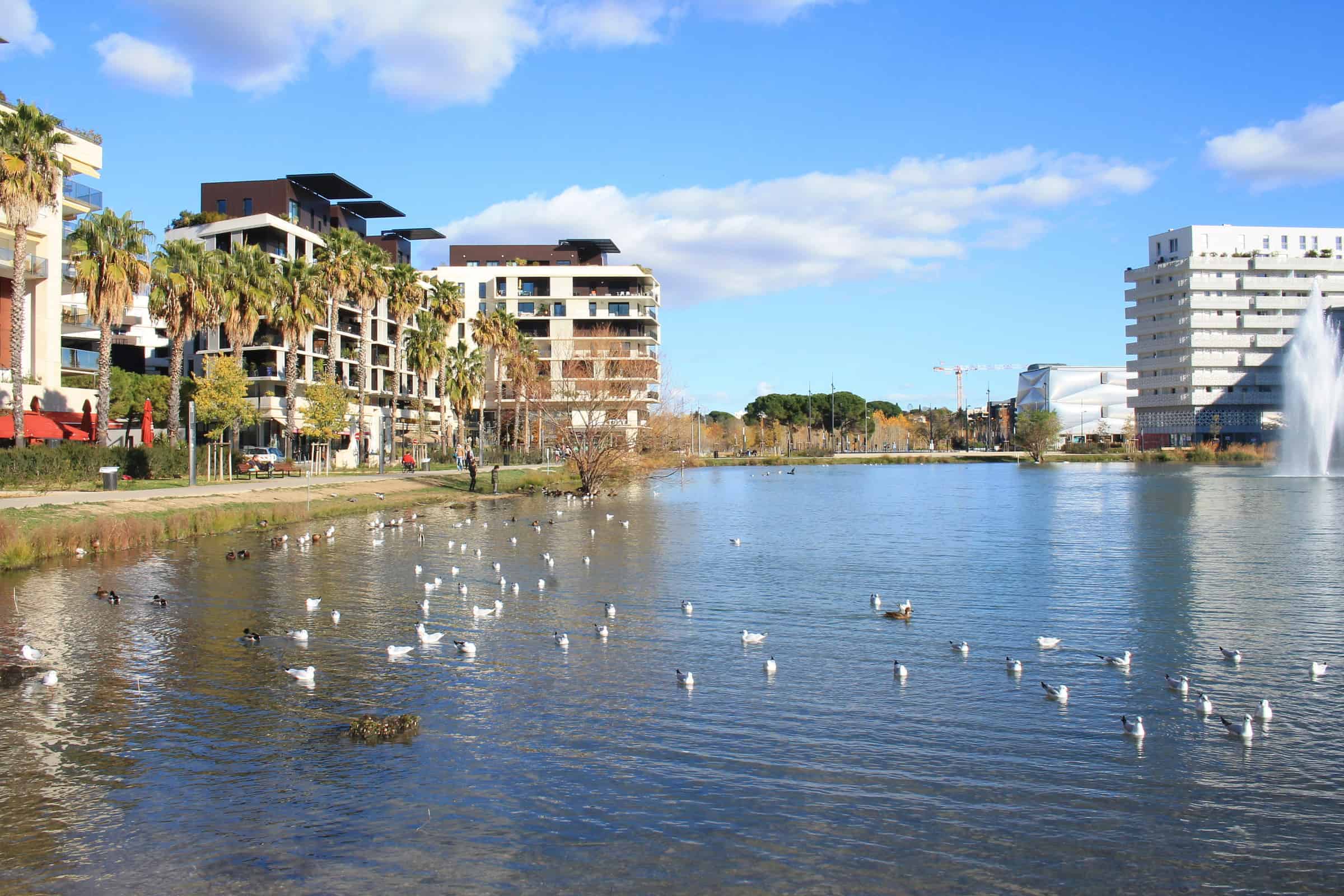
Port Marianne is roughly a mile from the city center, but, as the name suggests, it is built on a port. It’s got greener with more open spaces than other central locations, so it strikes a nice balance between city living and nature. Also, it’s home to the city’s aquarium.
Final thoughts on moving to Montpellier
Montpellier would be a good choice for those wanting cultural activities in their retirement. While not as world-famous as somewhere like Cannes, the city can definitely hold its own in terms of music and cinema festivals.
Combine this with the Mediterranean weather and amazing food and wine, and you definitely have an attractive retirement destination.
While the city doesn’t have much in the way of downsides, it’s worth experiencing life there for yourself before settling down. Consider renting a property for a few months and exploring everything in detail.
Regardless of how you go about it, you could do much worse than Montpellier for your retirement destination of choice.
Other popular expat destinations in France to consider:
- Living In Lyon As An Expat – The Insider Guide
- Discover What It’s Like Living In Toulouse As An Expat
- What’s It Like Living In Nice, France, As An Expat
- Living In Bordeaux – The Expats’ Guide
- The Insider Guide To Living In Paris As An Expat
You might find helpful:
- Living In France Guide – everything you need to know to plan your move and settle down in France
- The Best Places to Live in France – a detailed overview of France’s most popular locations for expats.
- Opening A Bank Account In France As An Expat
- Healthcare In France For Expats
- Understanding International Health Insurance: A Comprehensive Guide
Secure Peace of Mind with Best-Value International Health Coverage
International Citizens Insurance provide free, no-obligation quotes from the leading international health insurance providers with plans tailored to meet your needs. Trusted by thousands of expats worldwide.










